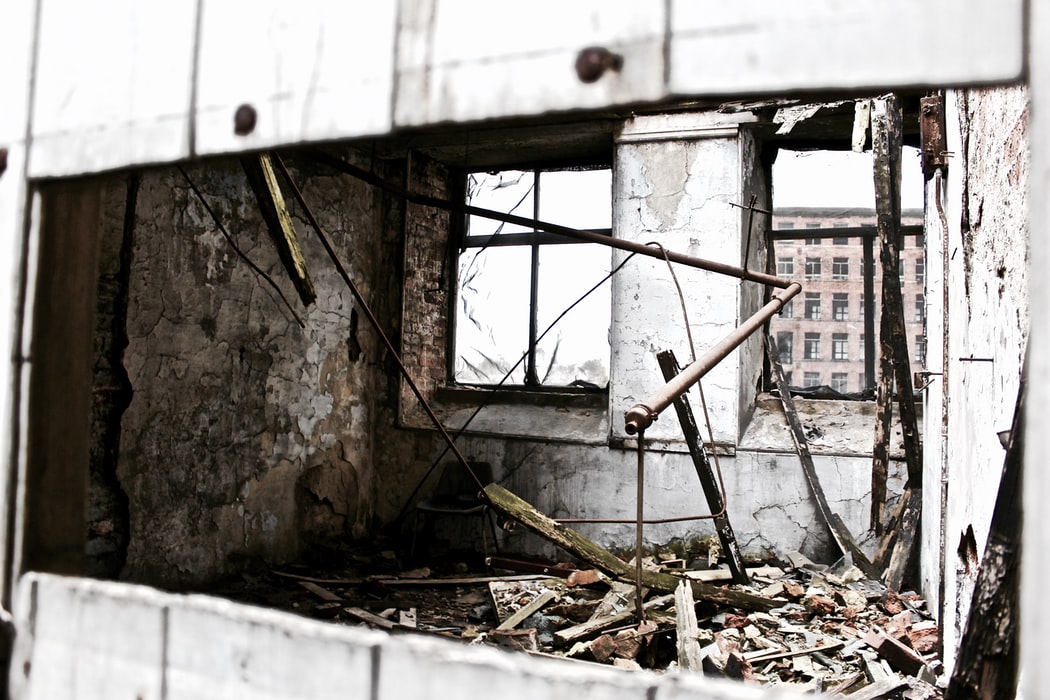A s we watch the events unfold in Afghanistan after the U.S. withdrawal, I wonder, when will it end? The litany of places in the last few years where violence, fear, and oppression have run rampant would be enough for anyone, with any empathy, to cry out, “How long, O Lord?” If we add the current realities to the scope of human history, it is easy to see how one might wonder if there will ever be an end to the need for justice, healing, and (re)conciliation.
As a pastor, I did more funerals than I can count or remember. My go-to passage in these times of grief was Revelation 21:1-5:
Then I saw a new heaven and a new earth; for the first heaven and the first earth had passed away, and the sea was no more. And I saw the holy city, the new Jerusalem, coming down out of heaven from God, prepared as a bride adorned for her husband. And I heard a loud voice from the throne saying, “See, the home of God is among mortals. He will dwell with them as their God; they will be his peoples, and God himself will be with them; he will wipe every tear from their eyes. Death will be no more; mourning and crying and pain will be no more, for the first things have passed away.” And the one who was seated on the throne said, “See, I am making all things new.” Also, he said, “Write this, for these words are trustworthy and true.”
It is a promise that there will be an end to suffering, that God will see personally to the tears of the beloved, and that justice will be done, finally and forever. There will be an end. The violence, the abuse, and the oppression will pass away and be no more. “Nothing accused will be found there anymore” (Revelation 22:3).
There is hope that it will end.
But there is something that will not end. The need for healing and (re)conciliation. After the violence, judgement, and justice that is recorded in the book of Revelation, there is still healing to be done. There are still people who need to be welcomed into the city of the new creation, into the New Jerusalem.
The book of Revelation ends with this final image in Revelation 21:22–22:5:
I saw no temple in the city, for its temple is the Lord God the Almighty and the Lamb. And the city has no need of sun or moon to shine on it, for the glory of God is its light, and its lamp is the Lamb. The nations will walk by its light, and the kings of the earth will bring their glory into it. Its gates will never be shut by day—and there will be no night there. People will bring into it the glory and the honor of the nations. But nothing unclean will enter it, nor anyone who practices abomination or falsehood, but only those who are written in the Lamb’s book of life. Then the angel showed me the river of the water of life, bright as crystal, flowing from the throne of God and of the Lamb through the middle of the street of the city. On either side of the river is the tree of life with its twelve kinds of fruit, producing its fruit each month; and the leaves of the tree are for the healing of the nations. Nothing accursed will be found there anymore. But the throne of God and of the Lamb will be in it, and his servants will worship him; they will see his face, and his name will be on their foreheads. And there will be no more night; they need no light of lamp or sun, for the Lord God will be their light, and they will reign forever and ever.
After all the trials and tribulations described in Revelation, there is healing to be done. After all the judgment and justice, there is still room for the nations to bring in their glory into the city of God. After all the death and darkness, there is still light to shine and the waters of life to be drunk.
The news seems bleak. Afghanistan won’t be the last nation to make the headlines. Even after our attention shifts to the next crisis, after our righteous indignation has found a new target, the pain for too many will remain. Yemen is still in a humanitarian crisis. In Nigeria, school children are still being abducted. There are still floods of refugees from South and Central America flocking to the southern borders of the U.S., desperate for a new life.
I’m no longer the pastor of a church. I haven’t led a funeral in eight years. God has called me to the work of laboring for healing between people of different faith traditions and cultures. In my current role, this passage still gives me hope. It now reminds me that the work of healing is the work of the new creation. Calling nations to live in peace and to bring their best into the kingdom of God is the ongoing work that will last beyond the final stroke of the sword, blast of a cannon, shrapnel of a bullet, or explosion of a bomb.
Right now, as individuals or even as the church, we can’t fix what is happening in Afghanistan. We aren’t going to be able to feed all the hungry in Yemen by tomorrow. We can’t save all the children who need a rescue. We won’t be able to bring justice to all who need it.
We can, however, welcome the refugee and the stranger. We can work for justice and peace in our neighborhoods, in our cities, in our countries, and in our world. We can say, “Enough!” and not contribute to further war and violence. We can mobilize our churches to reach out to people of other religious traditions and cultures and learn to live together in community. We can discover what they can bring into our churches and communities.
We can begin to offer healing, to wipe away the tears, to hold the hand, to feed the hungry, to shine light in darkness, and offer hope that someday, all this pain will cease, and God will wipe away every tear from our eyes.
Offer welcome and hope
As Justin suggests, individuals and churches can welcome the refugee and the stranger
as a tangible expression of light and hope in this world. Explore these migration and immigration church resources as you begin or continue to practice the hospitality of Jesus.
Justin Meyers
Rev. Justin Meyers is the executive director of Al Amana Centre in Muscat, Sultanate of Oman. While most of the work of Al Amana Centre is in the Middle East and African contexts, Justin is available to consult with churches in the U.S. on interfaith and peacebuilding initiatives. He can be contacted at jmeyers@alamanacentre.org.



